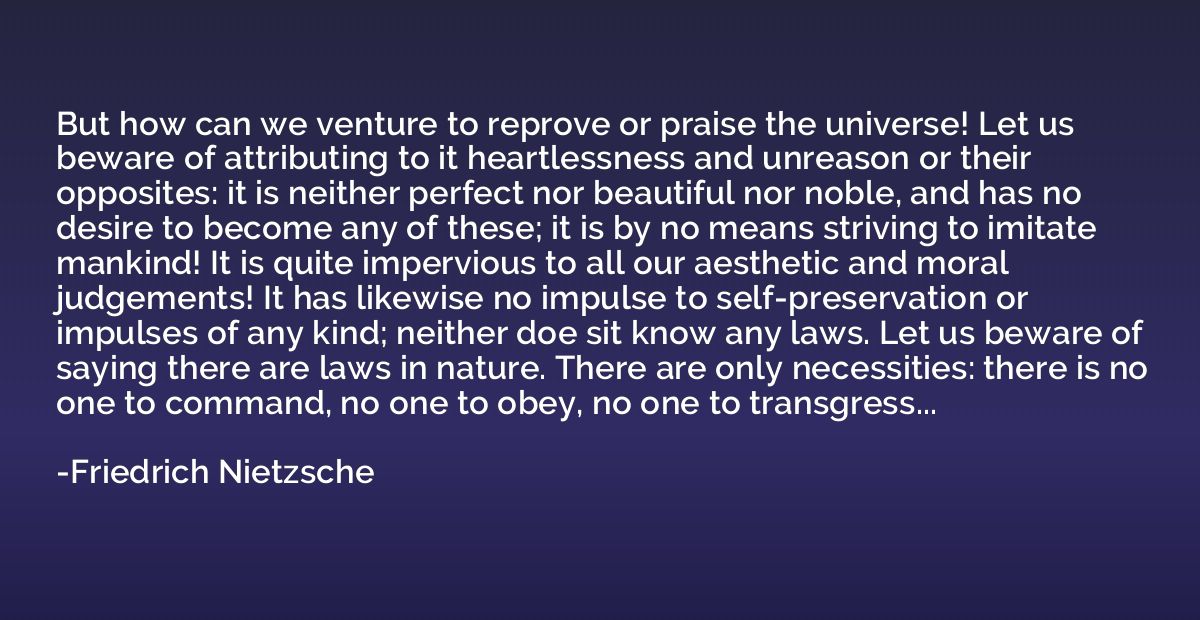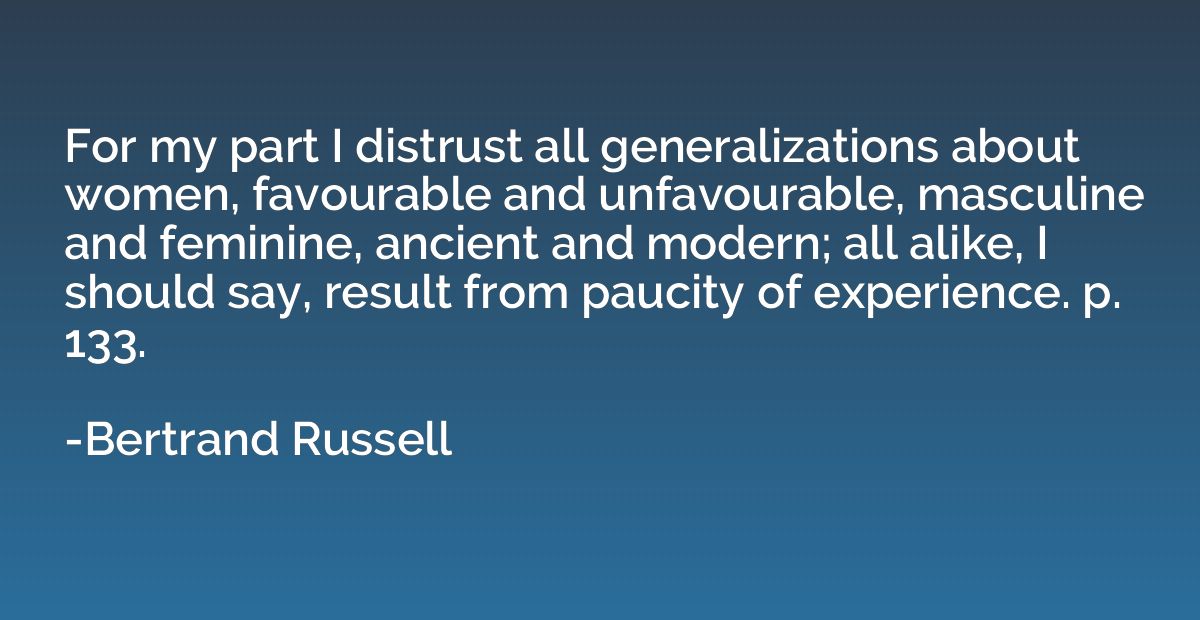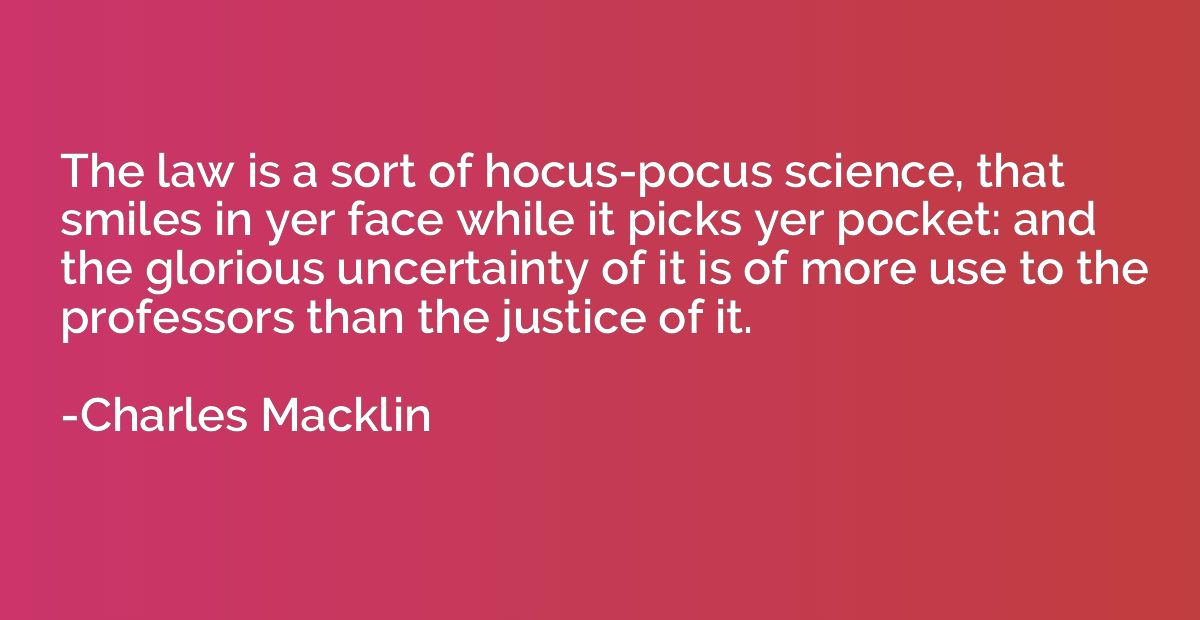Quote by Friedrich Nietzsche
But how can we venture to reprove or praise the universe! Let us beware of attributing to it heartlessness and unreason or their opposites: it is neither perfect nor beautiful nor noble, and has no desire to become any of these; it is by no means striving to imitate mankind! It is quite impervious to all our aesthetic and moral judgements! It has likewise no impulse to self-preservation or impulses of any kind; neither doe sit know any laws. Let us beware of saying there are laws in nature. There are only necessities: there is no one to command, no one to obey, no one to transgress...

Summary
This quote, attributed to Friedrich Nietzsche, emphasizes caution when imposing value judgments on the universe. Nietzsche argues against attributing human-like qualities such as heartlessness or reason to the universe. He cautions against assigning aesthetic, moral, or teleological intentions to nature, as it exists independently of human constructs. Nature operates based on necessities rather than laws, with no inherent intention for self-preservation or the obedience of any higher authority. In short, Nietzsche urges us to acknowledge the indifference of the universe to our human conceptions and to be wary of projecting human notions onto it.














